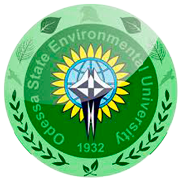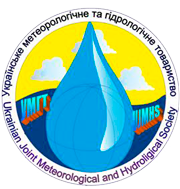Current state and possibilities for oversized municipal waste management in the regions of Ukraine
Abstract
Human life and activities generate municipal solid waste (MSW) consisting of municipal household waste (residential waste), waste from commercial organizations, waste from public institutions and organizations, waste from industrial enterprises, waste from urban maintenance and improvement. A common feature for all these types of waste is the fact that a municipality is an institution responsible for organization, management of its disposal process. Such waste is generated in everyday life, across the food network, when carrying out repair and construction works, in the municipal transport and communication systems, etc. The aim of the work is to assess the current state and possibilities of oversized municipal waste management in the regions of Ukraine. In order to achieve this aim, the study of the existing regulatory documents and existing experience in the field of oversized municipal waste management was conducted. The work is based on the analysis of the published data, as well as on the materials of our own research. The implementation of the MSW management system implies creation of a municipal center for recycling secondary raw materials based on the modular quarterly principle. A recycling station with a mandatory module for oversized waste reception and sorting should become a main structural element of the recycling center. In addition, it is proposed to create separate sites for collecting the oversized waste. This has already been implemented in some cities of Ukraine. When differentiating SMW flows, due attention is not paid to the used cars that can contingently be attributed to oversized secondary raw materials. In Ukraine the existing recycling centers do not meet modern requirements. Due to the lack of necessary experience in handling the used cars, one should turn to foreign experience and focus on the requirements of the developed countries. According to international standards, the life of a car is 10 years with its subsequent utilization in such a way that prevents it from having a negative impact on the environment. Since, as of today, 27% of cars in Ukraine are older than 30 years, so in case of their mandatory utilization, the number of such cars will be approximately 2.5 million. With such total number of used cars each region of Ukraine will need to handle about 100 thousand recyclable cars. It is hardly possible to create the recycling centers in each region, so, at the first stage, it is advisable to organize such centers, for example, in each economic region or cluster. The creation of the oversized municipal waste management system in the regions of Ukraine will make it possible to turn the waste into useful products, to reduce the level of a negative environmental impact and to obtain not only ecological, but also socio-economic effects.
References
Pichtel, John. (2014). Waste Management Practices: Municipal, Hazardous, and Industrial: second ed. CRC Press. Available at: https://books.google.com.ua/books/about/Waste_Management_Practices.html?id=bKLAAgAAQBAJ&redir_esc (Accessed 11 April 2020).
Cherp, O.M. & Vinnichenko, V.N. (1996). Problema tverdykh bytovykh otkhodov: kompleksnyy podkhod [The problem of municipal solid waste: an integrated approach]. Ekolayn, ECOLOGIA. (in Russ.)
Statistika otkhodov [Waste statistics]. (2013). Available at: https://www.unece.org/fileadmin/DAM/stats/documents/ece/ces/ge.33/2013/mtg4/Desk_study_RU.pdf (Accessed 4 April 2020). (in Russ.)
Proekt Zakonu Ukrainy «Pro upravlinnia vidkhodamy» [Draft Law of Ukraine “On Waste Management”]. Available at: https://menr.gov.ua/news/32869.html (Accessed 7 April 2020). (in Ukr.)
Natsionalna strategiia upravlinnia vidkhodamy v Ukraini do 2030 roku [National Waste Management Strategy in Ukraine until 2030]. Available at: https://zakon.rada.gov.ua/laws/show/820-2017-%D1%80 (Accessed 7 April 2020). (in Ukr.)
Safranov, T.A. et al. (2014). Upravlinnia ta povodzhennia z munitsypalnymy vidkhodamy: praktykum [Municipal waste management and management: a workshop]. Odesa: TES. (in Ukr.)
Safranov, T.A., Shanina, T.P. & Prykhodko, V.Yu. (2018). Klasyfikatsiia tverdykh butovykh vidkhodiv yak peredumova formuvannia systemy` povodzhennia z nymy v rehionakh Ukrainy [Classification of municipal solid waste as a prerequisite for the formation of a solid waste management system in the regions of Ukraine]. Dnipro: Publ Bila K.O. (in Ukr.)
Metodychni rekomendatsii z rozroblennya rehionalnykh planiv upravlinnia vidkhodamy [Methodical recommendations for the development of regional waste management plans]. Available at: https://menr.gov.ua/files/docs/nakazy/2019/nakaz_142.pdf (Accessed 7 April 2020). (in Ukr.)
Kuzhel, V.P. & Sevostianov, S.M. (2013). Ekolohiia ta resursozberezhennia na avtomobilnomu transporti [Ecology and resource conservation by road]. Vinnytsia: VNTU.
Zakon Ukrainy «Pro utylizatsiiu transportnykh zasobiv» [Law of Ukraine "On Recycling of Vehicles"] (2014). Vidomosti Verkhovnoi Rady`[Vidomosti of Verkhovna Rada], 20-21, art. 719.
Fatiukha, N.G. (2016). Statystychna otsinka rozvytku avtomobilnoho transportu Zaporizkoi oblasti [Statistical evaluation of road transport development in Zaporizhzhya region]. Efektyvna ekonomika [An efficient economy], 4. Available at: http://www.economy.nayka.com.ua/ ?n=4&y=2016 (Accessed 11 April 2020). (in Ukr.)
Shanina T.P. et al. (2012). Upravlinnia ta povodzhennia z vidkhodamy [Waste management and management]. Edited by T.A. Safranov and M.O. Klymenko. Odesa: TES. (in Ukr.)
Utilizatsiya avto: opyt Evrosoyuza [Auto recycling: EU experience]. Available at: https://www.autocentre.ua/avtopravo/avtobiznes/utilizatsiya-avto-opyt-evrosoyuza-2-265772.html (Accessed 11 April 2020). (in Russ.)
Malikhina, O.V. & Belyaev, A.I. (2017). Ekonomicheskie puti k utilizatsii avtomobiley [Economic ways to recycle cars]. Fundamentalnyye issledovaniya [Basic research]. 8-2, pp. 412-416. (in Russ.)
Mironova, M.N. & Lipovskaya, N.I. (2016). Effektivnost programm utilizatsii avtomobiley v Germanii i Frantsii [The effectiveness of car recycling programs in Germany and France]. Vestnik Rosiyskogo universiteta druzhby narodov. Seriya Ekonomika [Bulletin of the Russian University of Friendship of Peoples. Series Economics], 2, pp. 7-17. (in Russ.)
Vishnyakov, Ya.D. & Vaslyaev, M.A. (2007). Sistema utilizatsii avtotransportnykh sredstv i otkhodov tehnicheskogo obsluzhivaniya [A system for the disposal of vehicles and maintenance wastes.]. Ekologiya i promyshlennost Rossii [Ecology and industry of Russia], 10, pp. 50-52. (in Russ.)
Raynhard, V.A. (2007). Pererabotka starykh avtomobiley: Evropeyskiy opyt [Recycling old cars: European experience]. Tverdyie byitovyie othodyi [Municipal solid waste], 10, pp. 70-77. (in Russ.)
Utilizatsiya i retsikling avtomobiley [Utilization and recycling of cars]. Available at: http://privetstudent.com/referaty/referaty-po-ekologii/1433-utilizaciya-i-recikling-avtomobiley.html (Accessed 11 April 2020). (in Russ.)
Sistemy utilizatsii legkovykh avtomobiley [Disposal systems for passenger cars]. Available at: http://www.avtomash.ru/guravto/2007/20070703.htm (Accessed 8 April 2020). (in Russ.)
Dzyad, E.V. & Andrukhiv, E.V. (2018). Osobennosti natsionalnykh politik upravleniya otkhodami stran-chlenov ES [Features of national waste management policies of EU member states]. Visnik Dniprovskoho universytetu. Seriia «Svitove hospodarstvo i mizhnarodni ekonomichni vidnosyny» [Bulletin of the Dnipro University. The World Economy and International Economic Relations series], 10, pp. 17-27.

This work is licensed under a Creative Commons Attribution 4.0 International License.





